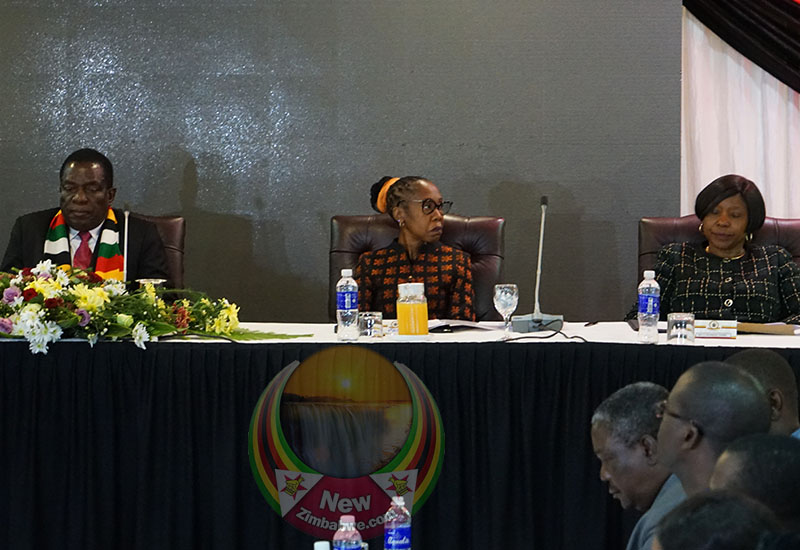THE International Labour Organisation (ILO) has rewarded excelling artistes who produced pieces depicting the changes that will take shape under the fourth industrial revolution.
The five winning artistes who pocketed US$3 000 each include Martina Gruber who scooped the best photography award, Wadzanai Tadhuvana (poetry), Webster Mubayirenyi (Illustration & painting), Daniel Chandimhara (music) and Victor Nyakauru (mix & audio visuals).
Speaking at the awards ceremony which ran under the theme, “Appropriately so, as you join us: At this Fast Forward; The Future of Work in a Green Economy Competition of the Arts” ILO country director, Hopolang Phororo described the awards as the first of a kind.
“The event is the first and one of its kind bringing together artistes from across Zimbabwe showcasing talent around the future of work through varying lenses of visual arts , performing arts, literature and a combination.
“Credit goes to the government of Sweden for supporting the ILO to fulfill a crucial and necessary task through creating green, decent and sustainable jobs in a nation endowed with so much sunshine encouraging innovation since a business as usual approach no longer works,” Phororo said.
The ILO director said a hundred years ago, jobs sufficed but hundred years later, the landscape has changed with jobs evolving at a rapid pace occupying different spaces.
Added Phororo: “The ILO recognises the transforming world of work .Greening of economies was unheard of in the past, today, it is a buzzword unsurpassed sustainable practices and clean technologies are imperative.”
Also speaking at occasion, Sport Arts and Recreation Commission secretary, Thokozile Chitepo urged stakeholders to appreciate the economic contribution of the creative industry.
“The cultural and creative industries is a critical sector in the Zimbabwean economy matrix. It creates jobs and grows the economy. Between 2002 and 2015, the contribution of the creative economy globally grew from $208 million to $509 billion.
“For Zimbabwe, according to the United Nations Educational Scientific and Cultural Organisation Country report, the sector contributed 6.98 % to the Gross Domestic Product,” said Chitepo.
Zimbabwe adopted the decent work agenda of the International Labour Organisation in 2005 and has implemented it in three phases from 2005-2008, 2009-2011 and 2012-2017.
The country is set to implement the fourth generation of the decent work program.
In 2005, the country prioritised poverty reduction through employment creation, and the fight against HIV and AIDS at the workplace as well as strengthening social dialogue. In 2009, Zimbabwe undertook a review of the first cycle which was instrumental in developing the second cycle.






